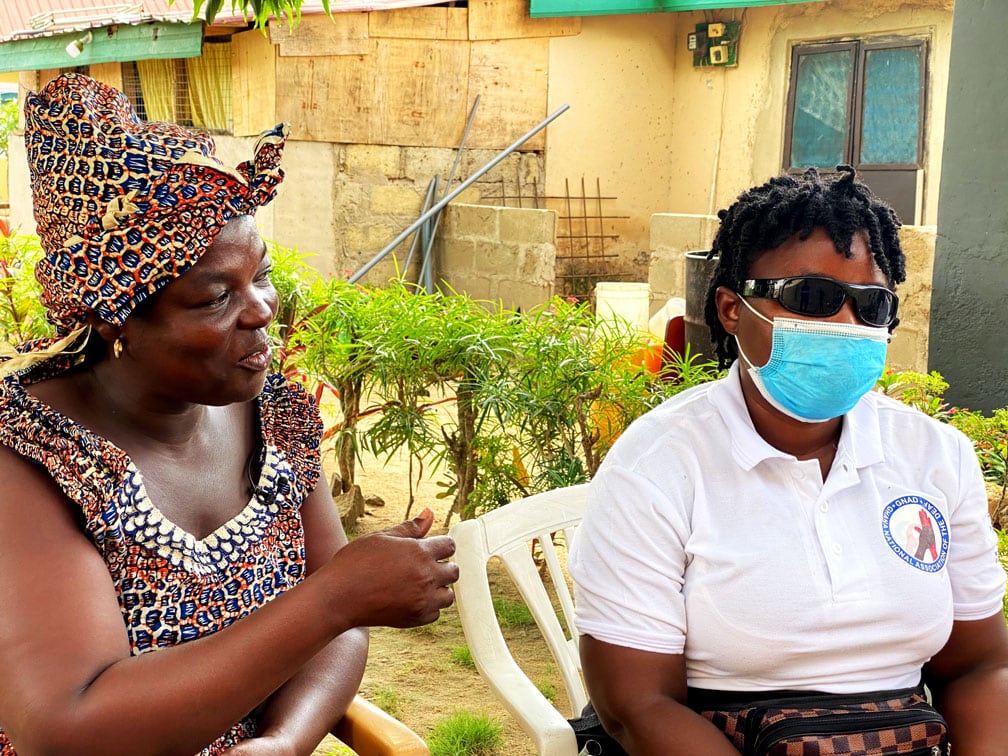
The impact of the Covid-19 pandemic on the lives of persons with disabilities is still an issue that has hardly been recognised. Despite the devastating consequences of the pandemic, especially for persons with disabilities, it has also shown that it is a worthwhile effort to strengthen inclusion in crisis management.
The pandemic caught many countries and their health systems off-guard – and containment measures had to be discussed, enacted, and corrected in great haste. Economic downturns, the closure of educational institutions and an overstretched health system particularly affect those who were already exposed to social inequalities before the pandemic – and everywhere in the world.
“The Covid situation was especially hard for people with disabilities,” Lika from Georgia explains. She works as a model with disabilities for the textile company Kombinizona. “Precisely because we always try to live actively. That very thing has been taken away from us. Sitting at home with nothing to do is the worst.”
Asia Yaghi, member of the Supreme Council for the Rights of Persons with Disabilities in Jordan and founder of the organisation “I am Human Society for Rights of People with Disabilities”, also points out: “There are many people with mobility impairments who have to leave the house to attend physiotherapy or rehabilitation sports”. But what if you can’t do that anymore because the facilities are all closed? “That has caused many problems”.
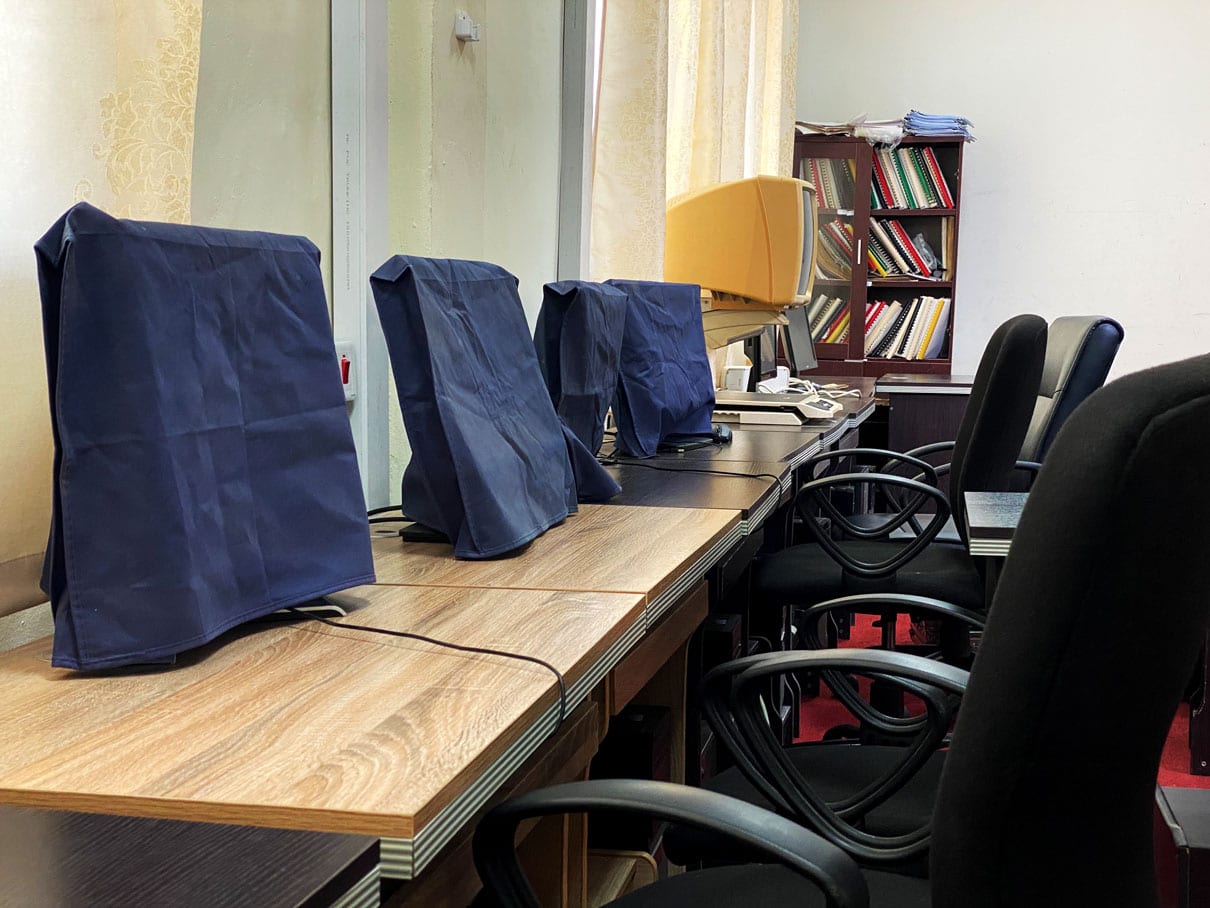
Empty classroom at University of Winneba, Ghana
Another challenge during the pandemic has been that vital hygiene information from government institutions were often not accessible to persons with disabilities. Accessible communication is therefore a key concern for Gertrude Oforiwa Fefoame from Ghana. Fefoame herself has a visual impairment and is one of Ghana’s leading voices on disability and women’s rights.
As an elected member of the United Nations Committee on the Convention on the Rights of Persons with Disabilities, she advocates for the rights of persons with disabilities at the highest international political level. How to make information accessible to all was not an issue in Ghana at the beginning of the pandemic, she reports.
“I remember a TV commercial with instructions on how to wash your hands thoroughly to kill potential viruses. This commercial was almost all visual, with no audio description. I had to ask my husband what it was about. Luckily, he told me that I have always washed my hands according to the instructions,” Gertrude says with a twinkle in her eye.
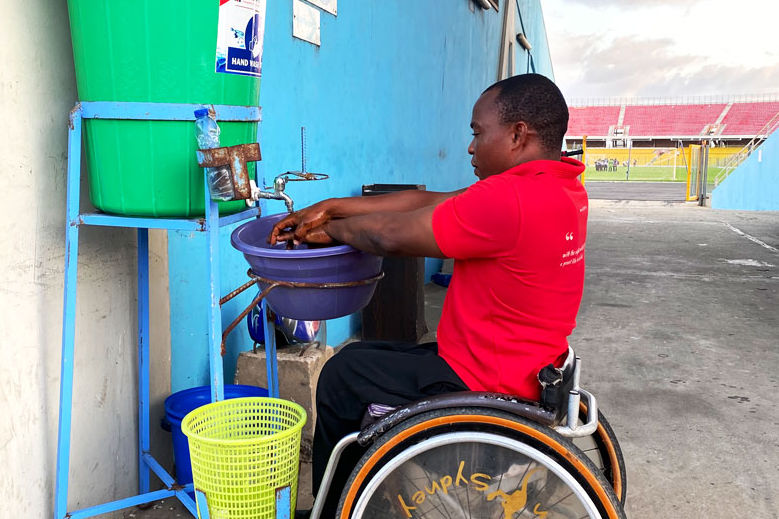
Maclean Atsu Dzidzienyo, athlet with disabilities from Ghana, washing his hands
Dealing with the pandemic reveals opportunities for inclusive coexistence
Even during the pandemic, activists like Gertrude continued to raise awareness for an inclusive society. For example, she made sure that government representatives in Ghana had sign language interpreters at their press conferences.
Through her large network with civil society, she has also succeeded in making information accessible to many persons with disabilities. For example, the World Blind Union produced important documents on the pandemic in Braille. Successes such as these raise hope.
Strategies for dealing with the crisis also represent an opportunity for a more inclusive society. The newly developed working-from-home culture and the increased use of digital technologies have opened many opportunities for persons with disabilities to participate in society. For many of them, working from home is an alternative to working in non-accessible offices.
Maha Al Bargouthi, Paralympic gold medallist from Jordan, can see at least something positive in dealing with the pandemic: “The pandemic has brought us together. The people in our communities and especially the athletes have worked together. They broadcasted their trainings from home on social media. This has given confidence to many Jordanians. Nothing can stand in our way, we remain strong – that was the message the athletes wanted to convey.
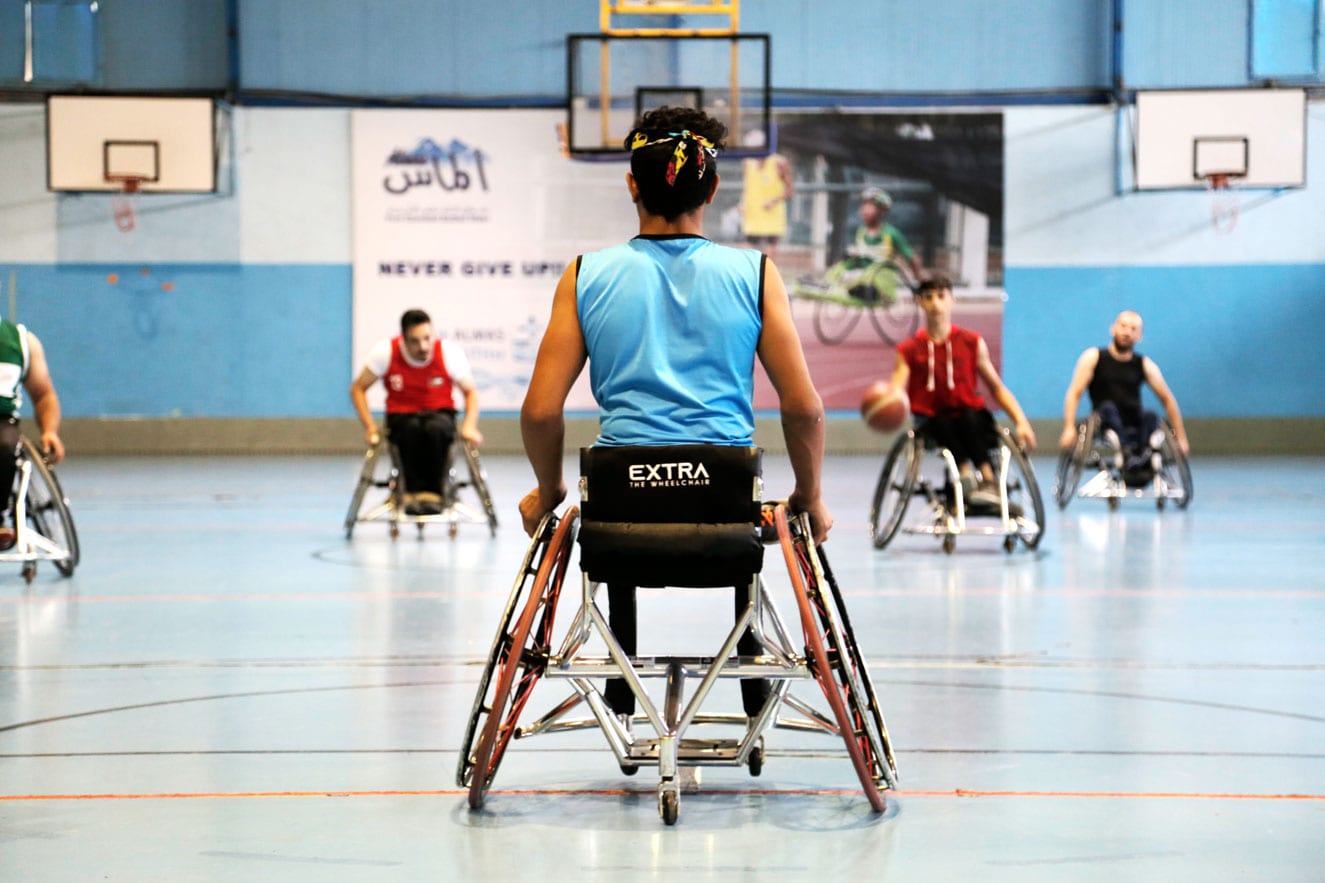
Training session of athlets with disabilities in Amman, Jordan © GIZ / Dina Naser
And what comes after the pandemic? Inclusion after the crisis
“With the restrictions caused by the pandemic came a greater awareness of the need to include persons with disabilities everywhere,” says Thomas Ongolo, Regional Advisor for Africa in the Global Project Inclusion of Persons with Disabilities of the Deutsche Gesellschaft für Internationale Zusammenarbeit (GIZ). He hopes that the needs of persons with disabilities will also be considered in the future. But what measures are needed to better accommodate persons with disabilities, after all 15 per cent of the world’s population, in crises like the pandemic?
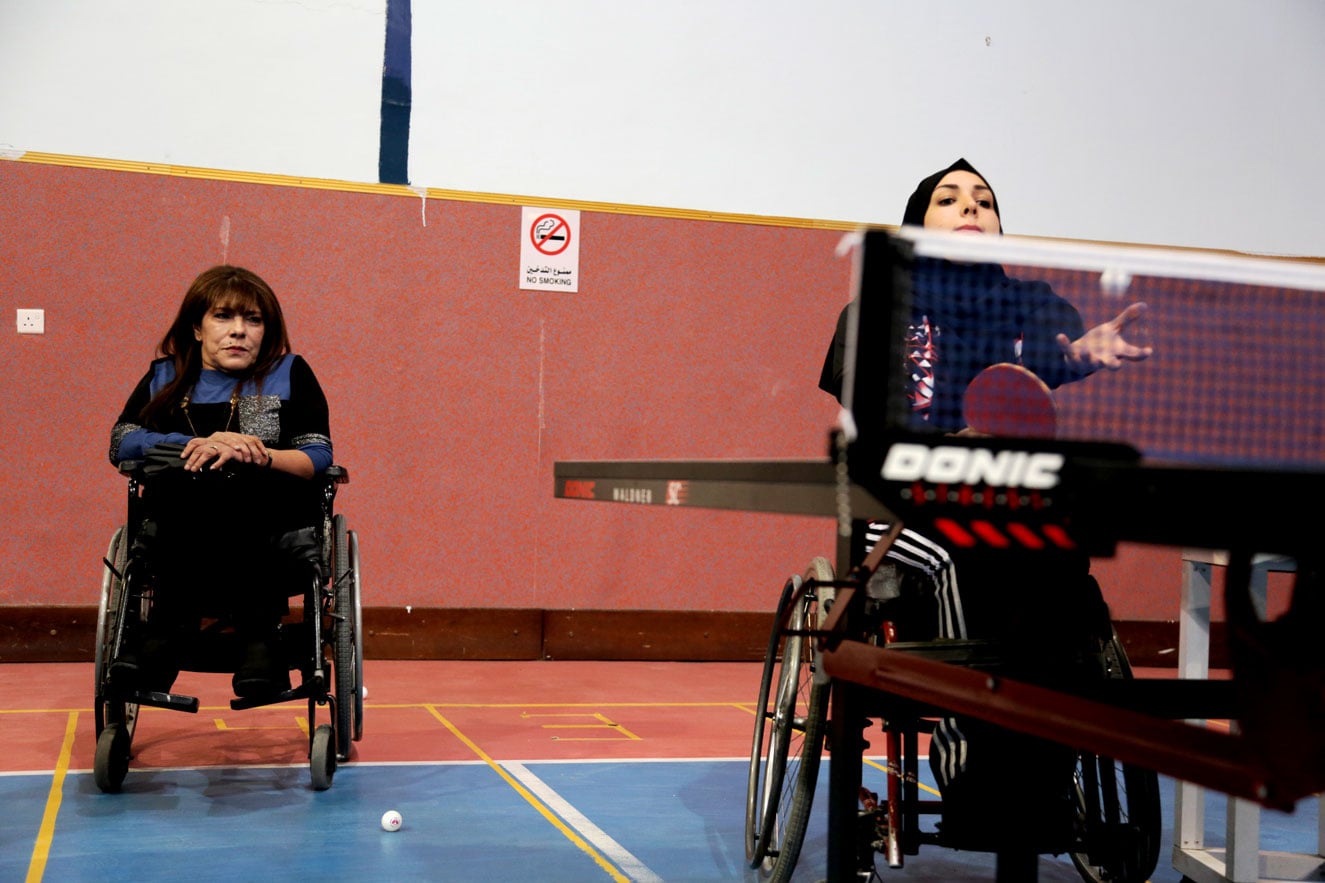
Maha Al Bargouthi attending a training lesson © GIZ / Dina Naser
The answer: disability mainstreaming. The term implies that the different contexts in which persons with disabilities live, and their needs, must be considered everywhere.
But this requires awareness of what these needs are, emphasises Revanthy Rugmini, who works for the British non-governmental organisation (NGO) Leonard Cheshire, and campaigns for the interests of persons with disabilities worldwide. “There needs to be more focus on inclusion from a policy and operational perspective,” she demands. There is no aspect of social life that does not directly affect persons with disabilities.
The most sensible way to implement the disability mainstreaming approach is therefore to include people with disabilities in decision-making processes and positions of power. There are many self-advocacy organisations that have enormous resources and knowledge at their disposal. Involving them in political and social decision-making processes means that in crises such as the Covid-19 pandemic, no one is left behind.